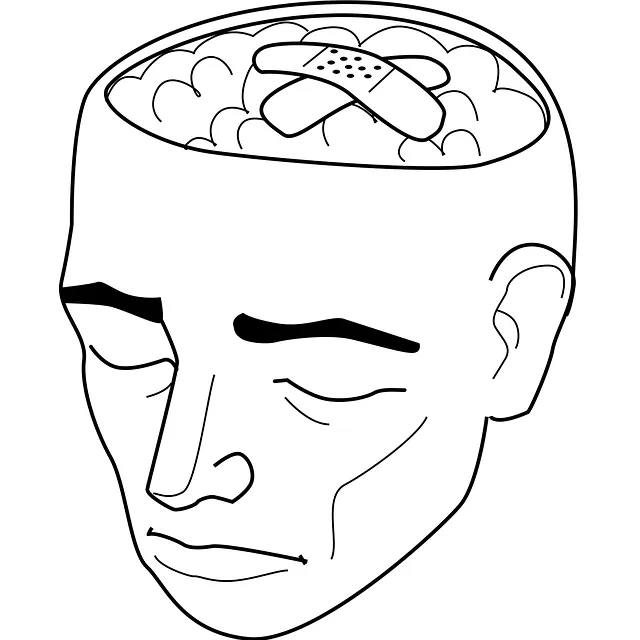Kaiser Trauma Therapy (KTT) offers a comprehensive, personalized approach to healing from trauma, addressing mental and physical aspects through cognitive behavioral therapy, mindfulness practices, and body-oriented therapies. Effective for childhood trauma survivors, KTT facilitates natural healing without heavy medication reliance. The process begins with identifying and assessing trauma, often leading to PTSD or other mental health challenges, using evidence-based tools and discussions. Kaiser therapy empowers individuals to actively participate in their recovery through safe recall and reprocessing of traumatic events, backed by successful case studies. Personalized treatment plans consider unique histories and resilience for better outcomes. Holistic trauma therapy at Kaiser targets symptoms and root causes using CBT, EMDR, mindfulness, and tailored alternative therapies, aiming for long-term recovery with ongoing support and resilience building.
“Uncovering effective trauma solutions is a critical step towards healing and recovery. This comprehensive guide explores Kaiser Trauma Therapy, a proven approach that offers hope to those affected by traumatic events. We delve into the process of identifying and assessing trauma, uncovering the evidence behind its effectiveness, and highlighting the power of personalized treatment plans.
From addressing comorbid conditions to long-term support, this article provides an in-depth look at Kaiser Trauma Therapy’s ability to facilitate holistic healing. Discover how this method empowers individuals to overcome challenges and build resilience, offering a path towards a brighter, trauma-free future.”
- Understanding Kaiser Trauma Therapy: A Comprehensive Overview
- Identifying and Assessing Trauma: The First Steps Towards Healing
- Evidence-Based Approaches: What Makes Kaiser Therapy Effective?
- Individualized Treatment Plans: Tailoring Care for Optimal Results
- Addressing Comorbid Conditions: Holistic Healing for Complex Cases
- Long-Term Support and Relapse Prevention: Building Resilience Post-Therapy
Understanding Kaiser Trauma Therapy: A Comprehensive Overview

Trauma is a profound and complex experience that can leave lasting effects on an individual’s mental health and well-being. Understanding Kaiser Trauma Therapy (KTT) offers a glimmer of hope for those seeking effective healing from abuse or other traumatic events. This therapy model is designed to help individuals process and overcome the impact of trauma, focusing on both the mind and body. KTT recognizes that trauma affects people differently, and its comprehensive approach aims to provide personalized support tailored to each client’s unique needs.
Kaiser Trauma Therapy draws from various evidence-based techniques, combining elements of cognitive behavioral therapy, mindfulness practices, and body-oriented therapies. By addressing the profound connection between the mind and body, KTT facilitates healing from abuse naturally without relying heavily on medication. This approach is particularly beneficial for individuals who experience trauma during childhood, helping them navigate the complex emotions and behaviors that often arise from such experiences. Through structured sessions, clients learn to regulate their emotional responses, process traumatic memories safely, and develop healthy coping mechanisms, ultimately paving the way for a fulfilling and trauma-free life.
Identifying and Assessing Trauma: The First Steps Towards Healing

Identifying and Assessing Trauma is the crucial first step in any healing journey, especially when it comes to effective trauma solutions. This process involves recognizing and understanding the symptoms and triggers associated with traumatic events. Many individuals, including veterans, often experience Post-Traumatic Stress Disorder (PTSD) or other mental health challenges stemming from past traumas. The Kaiser technique, a specialized therapy approach, has gained recognition for its benefits in treating PTSD among veterans. By employing this method, therapists help patients process and reframe traumatic memories, offering an alternative treatment to conventional therapies.
Assessing trauma involves a comprehensive evaluation of symptoms using evidence-based tools. This may include discussions about the event(s), their impact, and any subsequent changes in behavior or emotions. The goal is not only to uncover the trauma but also to identify coping mechanisms that might be hindering recovery. Alternative treatments like herbal remedies for trauma recovery can complement traditional therapy, offering a holistic approach to healing. However, it’s essential to consult professionals who understand the intricacies of trauma and its impact on mental health.
Evidence-Based Approaches: What Makes Kaiser Therapy Effective?

In the realm of effective trauma solutions, Kaiser therapy stands out as a robust and evidence-based approach. This innovative treatment method leverages a combination of specialized techniques to address complex traumatic memories. By integrating mindfulness practices for traumatic memories and trauma release techniques at home, Kaiser therapy offers a holistic approach that goes beyond traditional cognitive processing methods.
What sets Kaiser trauma therapy apart is its focus on empowering individuals to actively participate in their healing process. It encourages the safe recall and reprocessing of traumatic events, allowing for deeper understanding and resolution. Through this method, survivors can break free from the cycle of avoidance and re-engage with life in a more meaningful way. The evidence supporting Kaiser therapy’s effectiveness lies in numerous successful case studies, highlighting its ability to bring about lasting changes and improved quality of life for those affected by trauma.
Individualized Treatment Plans: Tailoring Care for Optimal Results

Creating individualized treatment plans is a cornerstone of effective Kaiser trauma therapy. Each person’s traumatic experience is unique, shaped by their personal history, coping mechanisms, and resilience. A one-size-fits-all approach cannot address the nuanced needs of individuals seeking healing. By tailoring care to each patient’s specific circumstances, therapists can foster a deeper sense of trust and engagement. This personalized approach enhances treatment outcomes, enabling individuals to process their trauma in ways that feel safe and supportive.
Integrating natural ways to process trauma, such as expressive arts, mindfulness practices, and gradual exposure techniques, into individualized plans empowers patients to take ownership of their healing journey. Additionally, trauma-informed care training for professionals ensures that therapists are equipped with the latest evidence-based practices and can create environments that reduce retraumatization risks. Trauma release techniques at home, guided by professional oversight, further complement in-session work, offering individuals tools they can use to manage symptoms between sessions.
Addressing Comorbid Conditions: Holistic Healing for Complex Cases

Addressing Comorbid Conditions is a critical component of effective trauma therapy, especially in complex cases where individuals may struggle with co-occurring disorders like Post-Traumatic Stress Disorder (PTSD) and depression or anxiety. At Kaiser Trauma Therapy, we recognize that these comorbid conditions often require a holistic approach to healing. This means treating not just the symptoms but the underlying causes, using methods such as cognitive behavioral therapy (CBT), eye movement desensitization and reprocessing (EMDR), and mindfulness techniques. By integrating alternative therapies tailored to each patient’s unique needs, we help them overcome challenges associated with their traumatic experiences without relying heavily on medication.
This holistic treatment for PTSD symptoms involves a comprehensive plan that may include specialized programs designed for war veterans or other high-risk groups. Trauma healing without medication is not just about managing symptoms; it’s about empowering individuals to develop coping mechanisms and regain control of their lives. Through these alternative therapies, we foster resilience and promote long-term recovery, enabling our patients to lead fulfilling lives free from the shackles of trauma’s lasting impact.
Long-Term Support and Relapse Prevention: Building Resilience Post-Therapy

After completing a course of therapy, individuals often seek long-term support to maintain their progress and prevent potential relapses. This phase is crucial in building resilience post-kaiser trauma therapy, ensuring that coping mechanisms become second nature. Many people benefit from ongoing counseling sessions or joining support groups where they can share experiences with peers who understand their journey.
Additionally, integrating practices like meditation and mindfulness into daily routines can significantly aid in trauma resolution. Herbal remedies for trauma recovery have also gained recognition, offering natural supplements to enhance the process. Through these comprehensive approaches—including kaiser therapy for childhood trauma, alternative treatments, and continued emotional support—individuals can develop the tools needed to navigate life’s challenges with increased resilience and well-being.
Kaiser trauma therapy offers a holistic, evidence-based approach to healing from complex traumas. By understanding the individual’s unique experience, tailoring treatment plans, and addressing comorbid conditions, this method facilitates profound and lasting recovery. Long-term support and relapse prevention strategies further empower individuals to build resilience and thrive post-therapy. Incorporating kaiser trauma therapy into comprehensive care plans holds the key to effective trauma solutions.






